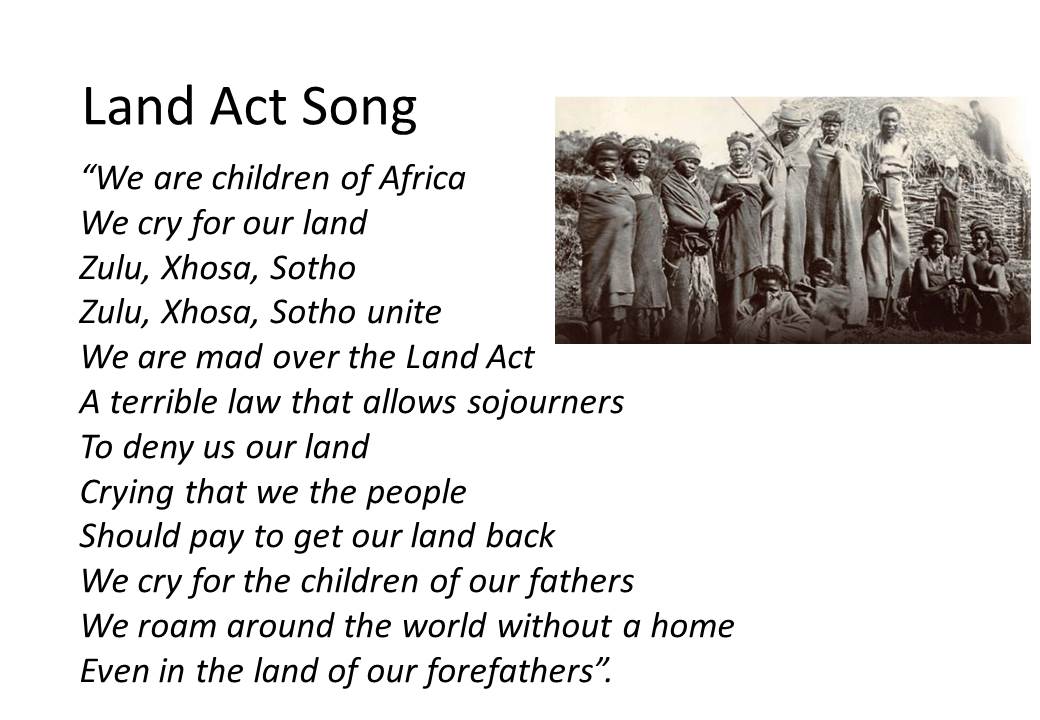 Aus’ Connie, as she was known, was born in the rural community of Goedgevonden in North West in 1971. Her family’s roots lie deep in the densely settled area around Ventersdorp. Here African families had countered dispossession by buying land and establishing communities in defiance of the laws of both the Boer Republic and its successors, the segregationist and apartheid governments. They established thriving family homes and farms against all the odds, and invested heavily in the education of their children at schools such as the famous Bethel Opleiding Skool (now called Bethel High School), and Boitshoko High School, built by the Uitkyk Missionaries. Aus’ Connie’s family and neighbours were forcibly removed in 1978 and relocated to Vrischgewaagd and Putfontein near Coligny in the former “homeland” of Bophuthatswana. She was already an activist in her teens when she participated in meetings called to resist the forced removal of her community of more than 300 households. She played an active role in the reoccupation of Goedgevonden in 1991, which took place in the face of violence by neighbouring white farmers and the police. She became heavily involved in rebuilding Goedgevonden, including volunteering as a teacher and making sure that both of the schools were rebuilt and registered. Connie went on to play a leadership role in the national movement to reoccupy confiscated land that emerged in the early 1990s. The movement went on to lodge and pursue a host of land claims after 1994, when the Land Restitution Act was adopted. She worked for the Transvaal Action Committee, was a leader in the Land Access Movement of South Africa (Lamosa) for many years, and later worked for the Nozala Trust alongside the National Movement of Rural Women. She worked tirelessly to support restitution communities and oppose unjust laws such as the Communal Land Rights Act of 2004 and the Traditional Courts Bill of 2008. Her work over the past three decades entailed thousands of community meetings, marches and petitions, as well as media engagements. Aus’ Connie was the coordinator of the Alliance for Rural Democracy in 2008/9, which was formally constituted through the formation of the Rural Democracy Trust in 2017. She played a pivotal role in bringing together the many small and large rural organisations and communities to oppose a slew of unjust laws and pro-elite government policies. She did not hesitate to oppose the government when community land rights were threatened and rural democracy was undermined. She travelled tirelessly from province to province, vigil to vigil, protest to protest, and also spearheaded important (and successful) legal challenges to the new laws and policies. The first cases concerned the Restitution of Land Rights Act of 1994 which she had fought for in her youth. The restitution process was subverted during the Zuma presidency to favour new claims by traditional leaders and various elites at the expense of long-delayed claims by rural groupings who had suffered forced removals during apartheid. This cynical redirection of resources to trump desperate land claimants and re-tribalise the former Bantustans was achieved by amending the Restitution Act. Constance was the first applicant representing the many desperate land claimant groups she had supported over decades. The second, more recent case successfully challenged the controversial Traditional and Khoi-san Leadership Act which sought to empower traditional leaders as the sole representatives of the 18 million South Africans living within the boundaries of the former Bantustans. The context here is that many of South Africa’s most profitable minerals, including platinum, are located within the boundaries of the former homelands. Multibillion-rand mining deals routinely enrich traditional leaders while they impoverish and dispossess the families who have occupied and owned the land for generations. Constance Mogale’s name will go down in history as the lead applicant in these crucial court cases. In one of her affidavits she wrote: “My grandparents and great-grandparents fought these battles and managed to bequeath land dignity and family cohesion to me and my siblings despite the enormous odds against them. To abandon these struggles for land and democracy is to abandon my own self. The ideals, traditions and rights that have sustained my family and my community are part of our legitimate customary law. They have made me who I am. Should we fail to preserve them and pass them on to the next generation, we doom our society to despair, corruption and disintegration.” Read more in Daily Maverick: Friday Activist: Constance Mogale Rural social movements in South Africa and elsewhere in Africa and the Global South will no doubt continue to draw inspiration from the life and struggles of Constance Mogale, who they see as a true African leader, a liberated woman and a democrat. Aus’ Connie is survived by a daughter, a son, a foster daughter and a granddaughter, and many others in her large extended family. This tribute was prepared by Professor Ben Cousins, chairperson of the Rural Democracy Trust. It appeared in the Daily Maverick on the 28th December 2023
0 Comments
It's official! At the meeting on 29th November 2023 Cabinet approved the draft Policy on Provision of Water and Sanitation Services on privately owned land. The policy seeks to explore ways to redress the provision of water services to residents on privately owned land by ensuring that there is access to a safe and potable water supply and sanitation.
This will be supported by appropriate health and hygiene practices for the people living on those lands that are currently out of municipal distributing network as envisaged in the Water Services Act, 1997 (Act 108 of 1997). The passing of this policy marks a significant triumph for equitable water provision. Every voice that contributed to this policy's evolution deserves applause for steering change! Privately owned land, a domain separate from public spaces, has been historically overlooked in water access. This policy reshapes the narrative, recognizing the rights of private landowners and residents alike. It doesn't just address infrastructure; it prioritizes equitable access to safe water and sanitation, fostering healthier habits and communities. This landmark policy is driven by the imperative to ensure that every individual, irrespective of where they reside, gains access to essential water and sanitation services. It mandates Water Service Authorities to play a pivotal role in facilitating and overseeing water provisions on private land. Moving forward, this policy blueprint lays down a roadmap for sustainable water services, emphasizing human rights, collaboration, and environmental integrity. It emphasizes that water and sanitation are fundamental rights and necessitates collaboration, participation, and improved health standards. Crucially, the policy promotes an enabling environment and funding mechanisms to turn these principles into a reality. It's a call for national advocacy campaigns, heightened awareness, and multi-sectoral cooperation for successful implementation. The journey ahead may involve a learning curve, evolving strategies, and flexible programs. It underscores the importance of local governance and inter-sectoral cooperation for effective service delivery. Let's keep pushing the boundaries to ensure that access to water becomes an undeniable right, irrespective of land ownership. Together, let's continue our journey toward an equitable, water-secure South Africa! You can access a five episode podcast series from the Corruption Watch website.
Episode 1: You’ll hear project leaders from CW and TI as they talk about the areas in which they want to see change happen and the research done so far, community activists who paint a disturbing picture of ruthless corruption between companies and authorities and threats to livelihoods and lives, and representatives of other organisations who tell of discrimination and hardships against marginalised people. Episode 2: Podcast host Melusi Ncala brings together people with different views on the land issue. Those on the left believe land should be returned to the black majority because of the country’s colonial past, and those on the right who believe that inequality and poverty can be addressed through employment and access to property rights. Episode 3: Melusi Ncala and the CW team take a field trip to the Western Cape’s agricultural region. Here they visit several farming communities and talk honestly and openly with people living and/or working on some of the region’s biggest farms, as well as small farmers who cannot realistically compete with the power wielded by white farmers. These discussions highlight the flaws in government schemes and programmes such as the equity scheme, the aim of which was to allow farm workers to share in ownership of the economy as a vehicle of transformation. Episode 4: In this episode farm workers tell us about their largely unrewarded toil for the owners. They speak about working on farms for their whole lives, and leaving with a fraction of what is due to them. Episode 5: This episode explores how policies introduced along with the new democratic order could inadvertently be responsible for the continued suffering of labour tenants and other social groups trying to access and own land. This despite the constitutional safeguards put in place to mitigate the very hardships that are now experienced by the rural poor. Experts discuss the problems at hand, and some of the solutions that have been put in place. Corruption Watch (CW) invites you to join moderator Sakina Kamwendo and the CW team for a listening session marking our new five-part podcast series, Land and Corruption: Story of the Marginalised, as well as the release of a research report that addresses the intersection between land, corruption, and discrimination.
An episode of the podcast series will be played at the listening session on Monday, 23 October 2023, and the report will be released, followed by a short discussion. The first episode of the series was launched on Wednesday 11 October and subsequent episodes will be released each consecutive Wednesday until 8 November. The series and report are based on CW’s participation in Transparency International’s long-running Land and Corruption in Africa project, which seeks to address land corruption risks and injustices in sub-Saharan Africa. Currently involved in the second phase of the project, CW’s work in this regard focuses on the plight of people who live and/or work in farming communities, specifically in the Western Cape. The case study included in the report focuses on equity schemes, a policy programme that was rolled out by the Department of Land Reform and Rural Development from the late 1990s until the 2010s. The launch will take place as follows:
31 August 2023 | By Masego Mafata | Johannesburg
Reprinted from GroundUp NGO's including SERI and Lawyers for Human Rights say they make sure the law is upheld, while the City of Johannesburg has failed to provide alternative accommodation for evicted people.
The building, believed to have been unlawfully occupied, is owned by the City of Johannesburg. Mayor Kabelo Gwamanda confirmed this in an interview with SABC on Thursday, saying the building was initially leased to “an NGO that dealt with displaced women”. Speaking on the unlawful occupation of the building, Gwamanda said it was unfortunate that “the building ended up serving a different purpose”. The death toll from the fire, which is expected to rise, is 73 people. The burnt building has put the spotlight on the housing crisis in Johannesburg’s inner city, and its unsafe, overcrowded buildings. “It’s no secret that most people living in the inner city are poor and cannot afford rentals, so they are forced to move into the city’s abandoned buildings,” attorney Khuselwa Dyantyi told GroundUp. Dyantyi is with the Socio-Economic Rights Institute of South Africa (SERI). Most of SERI’s cases involve people who have been unlawfully evicted, she said The City’s Speaker, Colleen Makhubele, told Newzroom Afrika that certain NGOs make it difficult for the City to tackle the issue of “unsafe, hijacked buildings” because they prevent evictions. Makhubele referenced a recent incident where Mayco Member of Transport Kenny Kunene, in his capacity as acting mayor, received backlash for his attempt to evict people from unlawfully occupied and unsafe buildings in the inner city. Nothando Shongwe, an attorney from Lawyers for Human Rights’ (LHR) land and housing programme, disputed this. “What we do is enforce laws that were put in place by the government to protect human beings. We don’t make the laws, so they cannot put the blame on us,” Shongwe told GroundUp. Dyantyi explained that Section 26 of the Constitution and the Prevention of Illegal Eviction from and Unlawful Occupation of Land Act (PIE Act) are the key laws protecting people against unlawful eviction. Section 26 of South Africa’s Constitution says that everyone has the right to have access to adequate housing and it is the government’s responsibility to ensure that this right is realised. Section 26 also protects unlawful occupants against arbitrary evictions and demolition of property. It states that no evictions and demolitions may take place without a court order. The Prevention of Illegal Eviction from and Unlawful Occupation of Land Act (PIE Act) gives effect to the Constitution. It describes the procedures that must be followed when evicting occupants. Included in these procedures is to find Temporary Emergency Accommodation (TEA), the mandate for which rests on the City. TEA is only provided if an eviction leads to homelessness. Eviction orders are usually not granted until the alternative accommodation has been identified. “This is where the disputes start because a lot of people know how long it takes to get a court order, so they will try to avoid that and evict people anyway. But that is against the law,” said Dyantyi. Dyantyi said because of the City’s failure to provide alternative accommodation, SERI currently has 28 eviction matters pending in court. The City currently has seven TEA sites with about 1,600 occupied beds between them, yet, according to its 2021/22 budget, there are more than 3,500 people awaiting TEA relocation. There is a dire shortage of alternative accommodation and this stalls eviction processes, Dyantyi said. Both Dyantyi and Shongwe said it is important to ensure that people are not rendered homeless when they are evicted. “Buildings that are not safe for occupation must be demolished, but the City has to provide alternative accommodation because without it, evicted occupants could just move to another abandoned and possibly unsafe building,” said Shongwe. According to Shongwe, poor management of buildings, especially municipal-owned buildings, means there is often no one monitoring the safety and structural integrity of the building. “The building that burnt today is a City-owned building, if it was managed properly today’s tragedy could have been avoided,” she said. Siyabonga Mahlangu, from the Inner City Federation, also said the failure to provide alternative accommodation was among the key contributors to people occupying buildings unlawfully in the inner city. The Inner City Federation is a civil society group of inner city residents established in 2015 to advocate for service delivery and the rights of people living in the inner city. Mahlangu accused the City of “dumping people” in municipal-owned buildings “supposedly serving as TEAs and leaving them there years without maintaining the building and providing services”. “We made a call in 2017 to then-mayor Herman Mashaba to fix the places that we are occupying but nothing came of that. Even today, we are still waiting. We have sent letter upon letter to the City but they told us that our matters can only be addressed by the ward councillor. “People move into these buildings, not to break the law but because they have nowhere else to go,” he said. Traditional and Khoi-San Leadership Act: Explanation of the court order
The Constitutional Court agrees that there was no adequate facilitation of public involvement with the applicants before the TKLA was passed. The Constitution requires the following from parliament:
The Court held that there must be reasonable steps taken to facilitate public participation. In considering whether the process was reasonable, the nature and importance of the legislation is significant: the greater the impact of the legislation on the rights of people, the better the process should be to be reasonable. In the judgment in the earlier case of Doctors For Life, the Court set out what would constitute as reasonable steps::
Parliament’s approach to public participation must be one that provides an opportunity that could influence the decision to be taken regarding legislation. Not only must people get the reasonable opportunity to make submissions, but those submissions must be placed before the lawmakers and thus be able to change the minds of the lawmakers. Even if Parliament decides to not make any changes, that decision must be taken after legitimately considering the public’s opinion.
The way in which parliament passed the TKLA was unconstitutional. As a result, the Constitutional Court declared the Act invalid. This means that the whole Act is set aside.
The court, however, held that its order that the Act is invalid will only kick in after 24 months. That means the TKLA is not immediately invalid, but only after 2 years. They did this so that Parliament has time to reconsider the TKLA and fix it or write a new law, but this time following a constitutional process. If Parliament fails to do so by 30 May 2025, the TKLA will immediately become invalid. Because the TKLA repealed the Traditional Leadership and Governance Framework Act (TLGFA), it means that the TLGFA will come back into effect at the same time.
A number of things that should happen in terms of the TKLA, like traditional council elections and the creation of traditional community accounts (like the D account), required regulations to be passed in terms of the TKLA first. It is unlikely that these regulations will be passed now given that the TKLA will become invalid in 2 years’ time. That would mean that elections won’t happen and probably very little else. However, as the TKLA will be in force for another 2 years, if communities want elections to happen, we can demand that regulations are passed and elections go ahead. There is no legal reason, until 30 May 2025, why that should not happen. The other big question is whether agreements can be signed in terms of s24 of the TKLA. Our preliminary view is that such agreements can be signed util 30 May 2025. However, there must be questions about the validity of such agreements: since all traditional councils are currently not validly constituted (because the deadline for elections was missed), can they sign agreements? And if an agreement is signed in terms of an Act that has already been declared unconstitutional even though it is still in force, what happens to such an agreement once the Act falls away (at 30 May 2025). These are questions that don’t have clear answers, and we may want to be proactive in telling the Department how this should be dealt with. For example, one could demand that a circular be sent around (as the North West government did some years ago) warning traditional councils not to sign agreements as they have not had elections. For now, we suggest:
Kimberly Mutandiro from GroundUp News recently reported on a court interdict sought by LandNNES member SERI against Operation Dudula to prevent it from violating the rights of migrants.
The Social Economic Rights Institute of South Africa (SERI) is seeking an interdict against Operation Dudula on behalf of various immigrant organisations, including Kopanang Africa Against Xenophobia, South African Informal Traders Forum and the Inner-City Federation, and also Abahlali BaseMjondolo. In court papers the organisations seek to stop the anti-immigrant movement from xenophobic and racist speech and conduct, and violating the rights of foreign nationals living in South Africa. Relief is also being sought against various state authorities for failing to execute their duties in the face of actions by Operation Dudula. The respondents are Zandile Dabula and Dan Radebe of Operation Dudula. Also included are the South African government, the ministers for police, justice, health, basic education, and the South African Human Rights Commission. The interdict being sought would prohibit Operation Dudula from intimidating and harassing people, demanding to check identity documents, forcing businesses to close, preventing informal traders from operating, evicting people from their homes without a court order, wearing uniforms resembling those of the police and army, denying people access to healthcare, and removing students and teachers from schools because of their nationality. The application asks the court to declare that only an immigration officer or police officer has the power in terms of the Immigration Act to demand that a person produce documents to demonstrate their right to be in the country, and that no private person has the power to do so unless expressly so authorised by law. The applicants also say the South African Police Service has breached its constitutional duties to uphold and enforce the law when it was violated by Operation Dudula. The applicants want to interdict the police and Department of Home Affairs from working with Operation Dudula in conducting raids on immigrant communities. At a media briefing, Nomzamo Zondo of SERI said the organisation had been threatened with violence by members of Operation Dudula after it launched a case last year on behalf of informal traders who had been chased off the streets. She said there was a need to protect witnesses in the light of Dudula’s history of violence. The applicants are seeking a special order to protect the identities of about 40 individuals who gave affidavit evidence about Operation Dudula’s unlawful conduct. The applicants want the court to order that the government fully implement plans against racism and xenophobia. “What we have not seen is the government taking concrete steps to address xenophobia,” said Zondo. Sharon Ekambaram, manager for Lawyers for Human Rights’s refugee and migrants program, called for an end to the tolerance of Operation Dudula’s “criminal vigilante bullying tactics” and for the police to take action. She called on activists to unite and keep a watchful eye on the court case as it proceeds as a show of unity. This would help “stop the rot of xenophobic scapegoating and government complicity in the false narrative around who is to blame for poverty, inequality, and poor service delivery,” she said. GroundUp has reported on various incidents where immigrants have been evicted from their homes and chased away from clinics, and where immigrant informal traders were stopped from trading by members of Operation Dudula. Zandile Dabula, Operation Dudula national spokesperson, said, “Under normal circumstances Operation Dudula would not be responding to attention seeking fraudsters masquerading as NGOs.” “The case by SERI and Kopanang is a desperate attempt to silence Operation Dudula and government to arrest these criminals using [trading] stalls to peddle drugs and counterfeit goods.” “Operation Dudula is at its final stages of collecting evidence to prove perjury and fraud committed by these two organisations. These two organisations will soon be exposed, their time is up.” This story was first published in GroundUp on 25 May 2023 On 30 May 2023, the Constitutional Court of South Africa declared the Traditional and Khoi-San Leadership Act 3 of 2019 to be invalid.
The Court found that Parliament failed to comply with its constitutional obligation to facilitate public involvement before passing the Act. The order of invalidity has been suspended for 24 months to enable Parliament to re-enact the statute in a manner that is consistent with the Constitution. The big question of course is whether this can happen within the time frame set by the Court. The judgment reveals how the development of policy and law relating to the land rights of the majority of South Africans frequently fails to hear and take into account the voices and views of people in affected communities. The application was brought by an alliance of land-rights activists, land-rights organisations and communities directly affected by the Act who challenged the way Parliament conducted public participation during the law-making process. Click here to download the full press statement by Stop the Bantustans Campaign. Click here to download the full judgement. Click here to access the full judgement online on the SAFLII website. The Legal Resources Centre, on behalf of a member of seven traditional communities in Limpopo, is challenging the imposition of taxes, levies, and rates by traditional councils in the province. Nkuzi Development Trust is the twelfth applicant. The applicants are asking the court to declare that the provision in the Limpopo Traditional Authorities Act that empowers traditional councils to levy compulsory taxes on community members is unconstitutional and inconsistent with customary law. The applicants say that, despite the widespread poverty in many traditional communities, they are required to pay annual fees and specific fees from time to time for anything from a traditional ceremony to the chief’s car. If they fail to pay, they are punished by the traditional council through the refusal to provide proof of address letters, residential stands or burial sites. The Constitution only empowers government to raise revenue through compulsory and universal taxation. The applicants also argue that customary law has never included compulsory charges to be levied on community members. Instead, the power of taxation for traditional leaders was introduced by the colonial government and pursued by the apartheid government. The continued practice of enforcing these taxes is a purely colonial practice. The traditional councils, the Premier of Limpopo and the MEC for Traditional Affairs and Cooperative Governance in Limpopo all oppose the relief. They are all in agreement that customary law does not allow for compulsory levies – only voluntary ones agreed to in consultation with the community. However, they insist that all the levies in Limpopo are both voluntary and the result of a community consultation. Yet they are unable to provide any evidence of these allegations. By contrast, the applicants relate the stories of hardship caused by this practice. Mr Ernest Boima from Modjadji village near Tzaneen was an applicant in this matter, but he sadly passed away during the litigation. His son, Martin, told the court how his family was refused a burial site for Mr Boima because he had outstanding levies, and how they were forced to borrow money to pay these taxes hastily to be able to bury their father. Mr Alfred Mafikeng was visited by the police for not paying his levies, while Ms Mamila Rose Baloyi was not able to get a proof of address letter to apply for an identity document, because she had levies outstanding. The applicants say that these levies are not voluntary contributions, but compulsory taxes that, if unpaid, leads to sanctions. They say that these taxes are used as a tool of oppression against community members such as the applicants. Furthermore, the applicants also request a declaration that the Limpopo Traditional Councils are illegitimate as they have failed to hold required elections for legal constitution over the past two decades. The matter came before before Deputy Judge President Semenya in the Polokwane High Court on the 15th May 2023 A range of community consultations on traditional leadership laws have highlighted how tribal levies are a pressing issue. These levies are compulsory fees charged by traditional authorities from members of rural communities. They can take the form of either a fixed annual sum or ad hoc amounts for specific purposes.
A particular complaint by communities has been the withholding of “proof of address” letters by traditional leaders on the basis of non-payment of levies. “Proof of address” letters, required by the Department of Home Affairs and other institutions, are crucial for people to exercise basic citizenship rights, such as acquiring identity documents, or to access financial services by opening bank accounts. This “double taxation” of rural people was a violently contested feature of the former Bantustan system. Although the Traditional Leadership and Governance Framework Act does not expressly allow tribal levies, some ambiguity is created by a provision of the Act that requires traditional councils to meet at least once a year to give account of the “levies received”. Three of the provincial statutes enacted in terms of the Framework Act declare levies unlawful but allow for “voluntary contributions”, while another three are silent on the matter. The Limpopo Act No. 6 of 2005 is the only piece of legislation that specifically authorises the levying of a compulsory traditional council rate. The constitutionality of this act is now being challenged in Limpopo in a case brought by LandNNES member the Nkuzi Development Association. |
LandNNES mediaThis blog features news from the network Archives
January 2024
Categories |

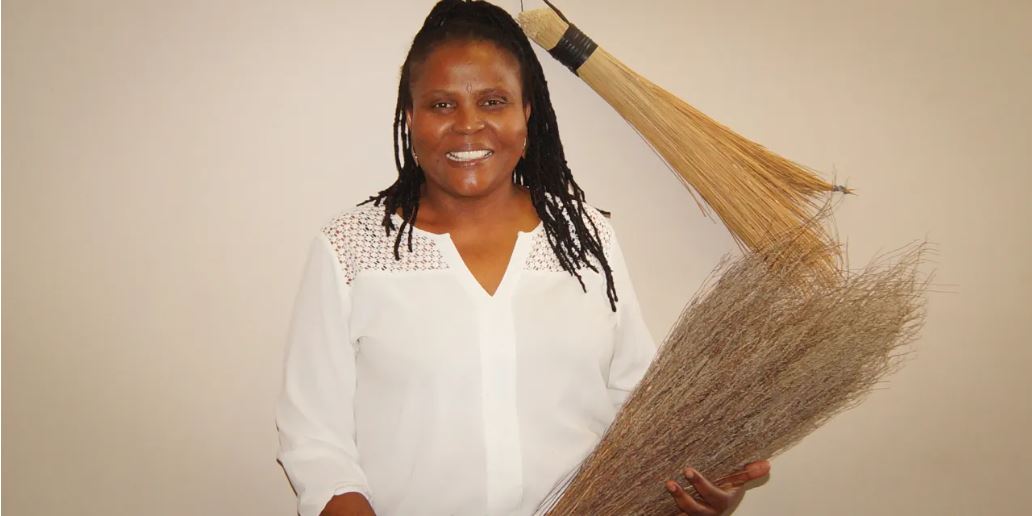
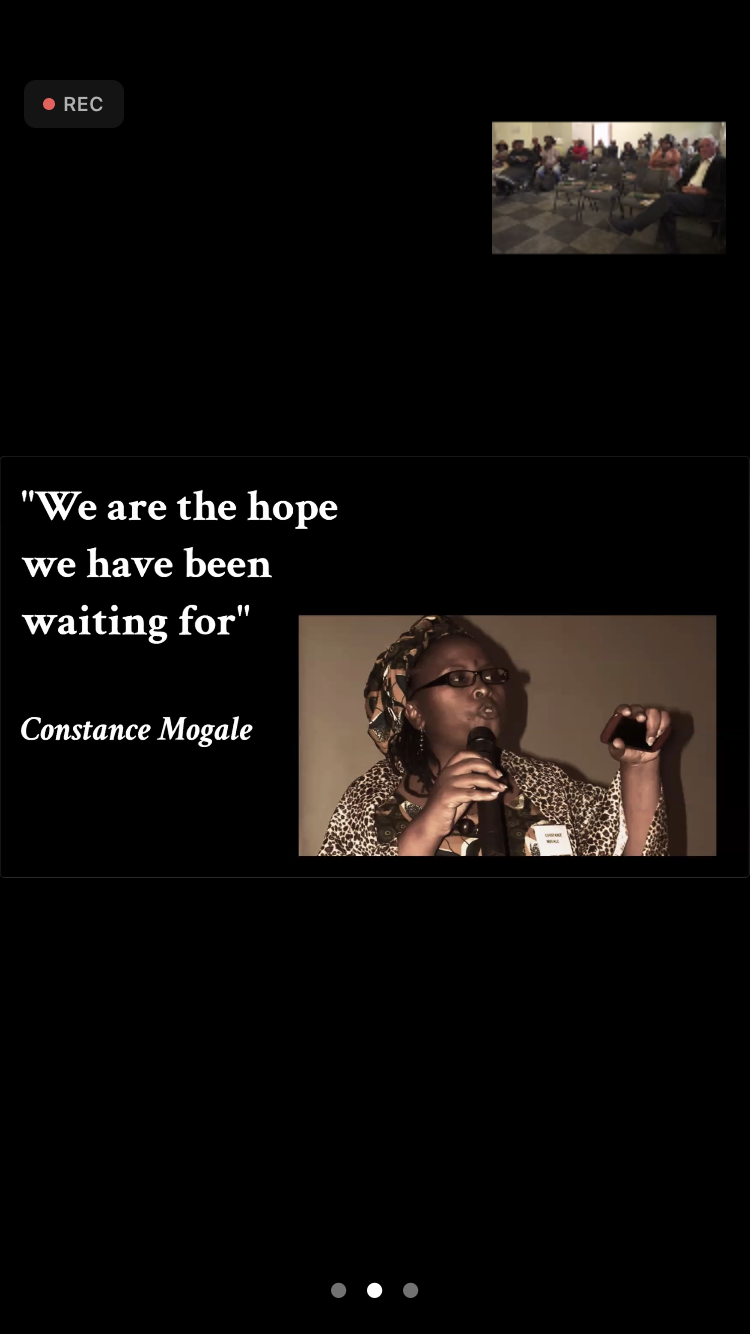

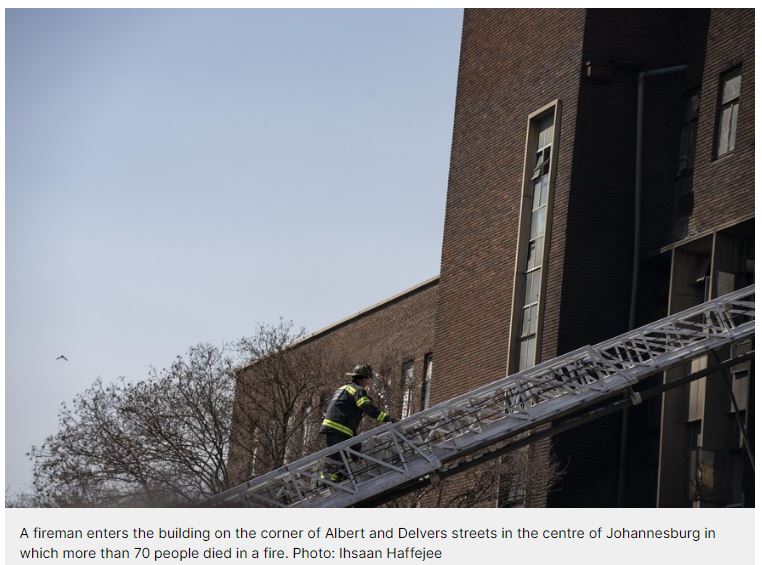
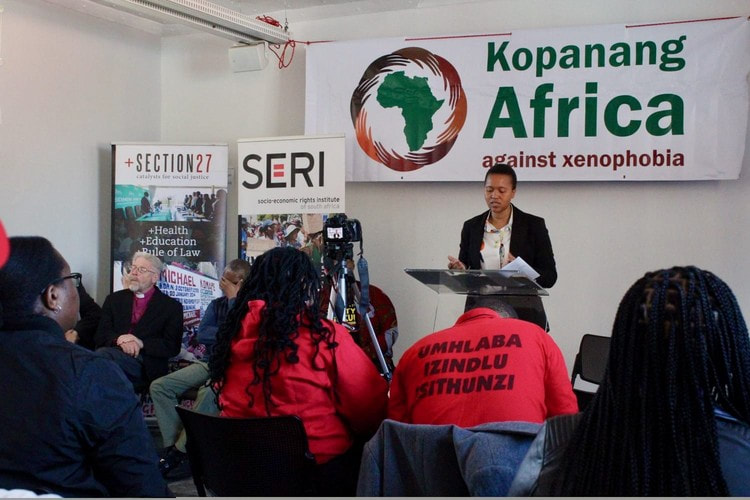
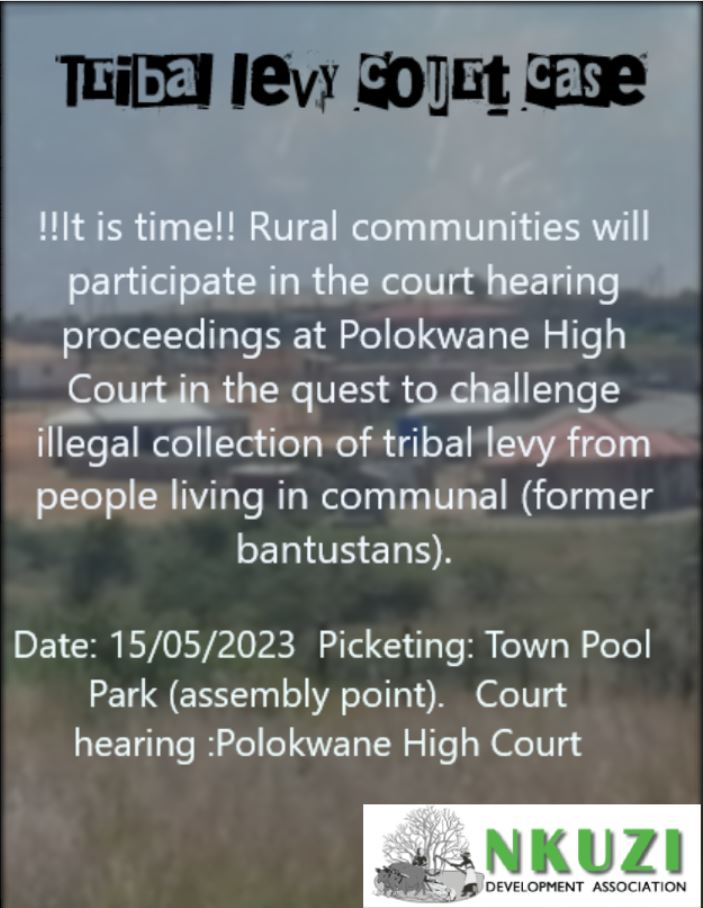
 RSS Feed
RSS Feed
